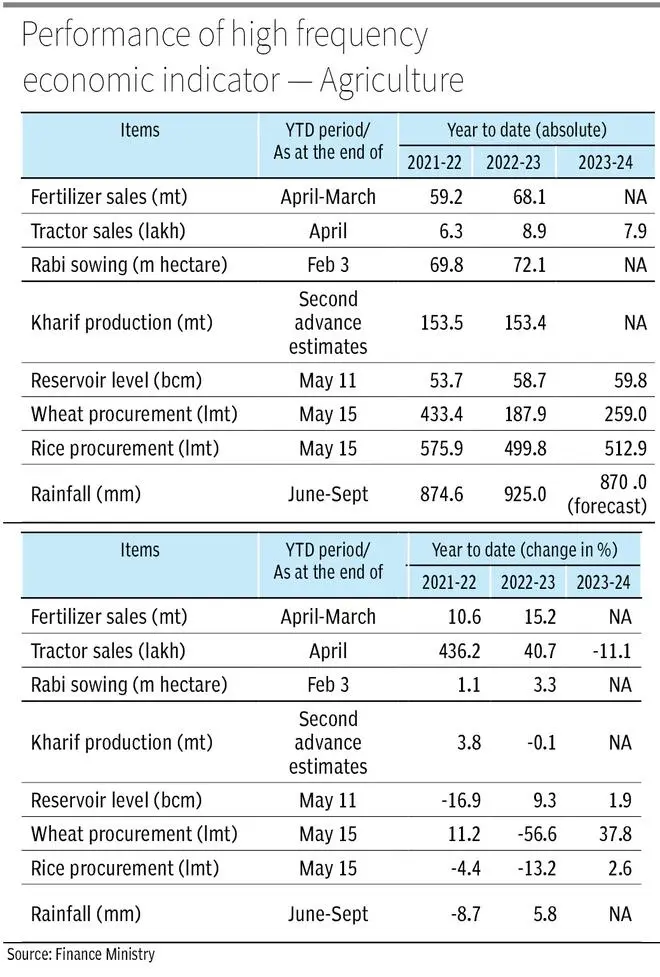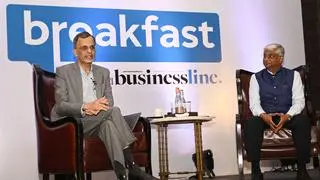The Indian economy could see risks to growth and inflation due to external challenges and weather-related uncertainties but the domestic demand remains strong, Finance Ministry said in a report on Monday.
“There are downside risks to growth and upside risks to inflation, partly channelled through the external sector and partly originating from weather uncertainties. Yet, a strong point going India’s way is the strength of its domestic demand. Consumption has shown steady and broad-based growth, while investment in capacity creation and real estate is finding traction,” the Ministry said in an Economic Review prepared by the Economic Affairs Department.
April being too early in the year, the report did not forecast for the entire fiscal. “A good beginning, though, is a harbinger of positive outcomes,” the report said.

Food inflation expected to be low
Going forward, it said the expected bumper harvest of foodgrains in FY23 and brightened prospects for the kharif season in FY24 are expected to keep food inflation low in the upcoming months.
“Healthy prospects for the kharif season, higher minimum support prices (MSP) for crops, and increased budgetary spending by the government are likely to enhance farmers’ income and boost the rural economy,” the report said.
The report highlighted that inflationary pressures across countries are waning. The World Bank’s Commodity Outlook, April 2023, saw prices of international commodities, barring precious metals, easing in the current year following weakened prospects for global demand and improving supply chains.
The price level, however, remains above pre-pandemic levels and may continue to do so if oil supply gets even more restricted than expected, geo-political tension intensifies, and weather conditions become unfavourable.
Thus far, the softening of international prices has led to an easing of domestic inflationary pressures in India. WPI inflation, after remaining in double digits for 18 months, has now declined to a 33-month low of -0.9 per cent in April 2023. Similarly, CPI inflation has also gradually declined from a peak of 7.8 per cent in April 2022, to an 18-month low of 4.7 per cent in April 2023.
The Reserve Bank of India (RBI) calculates inflation to be around 5.2 per cent in 2023-24, and GDP growth at 6.5 per cent in the financial year beginning April 1.
The RBI targets inflation at 4 per cent, with a tolerance level stretching up to two percentage points on either side.
The report said sticky core inflation has moderated significantly to almost a three-year low in April, signalling a pass-through of lower input costs by producers.
Going forward, the expected bumper harvest of foodgrains in FY23 and brightened prospects for the kharif season in FY24 are expected to keep food inflation low in the upcoming months, the report said.








Comments
Comments have to be in English, and in full sentences. They cannot be abusive or personal. Please abide by our community guidelines for posting your comments.
We have migrated to a new commenting platform. If you are already a registered user of TheHindu Businessline and logged in, you may continue to engage with our articles. If you do not have an account please register and login to post comments. Users can access their older comments by logging into their accounts on Vuukle.